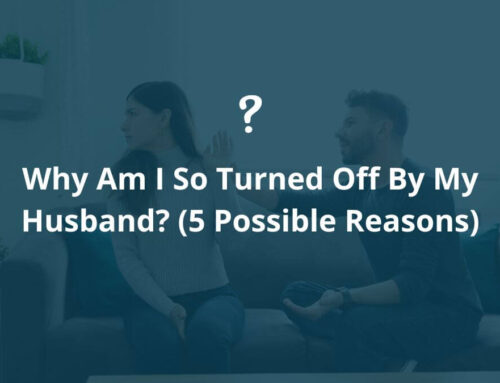A conversation with Kimberly Holmes & David Mathews
Don’t have your headphones or a private place to listen right now? Check out the conversation below!
Kimberly Holmes:
At Marriage Helper, we have been able to work with thousands of couples from around the world. We’ve been able to see the intimate details a lot of times, of what ended up causing (or leading up to) the crisis they ended up having in their marriage. In fact, a lot of times a crisis that happens in a marriage, is predicated by some kind of loss in one or both of the spouses’ lives.
Kimberly Holmes:
I’m joined today by David Mathews. He’s one of our Workshop facilitators. He’s been working with Marriage Helper, doing our workshops for over 10 years. He and his wife are on our team… but they are also the founders of Spark of Life, which is a ministry that has focused on helping people overcome loss of any kind.
David Mathews:
Yes, a loss of any kind. That’s really important, and it does affect marriages. We’ve dealt with grievers from all over the world, thousands of them. We see where loss sometimes is the missing ingredient, that people don’t recognize as a deep loss.
David Mathews:
As you said, later on, they get in a crisis. Often the loss that they really haven’t dealt with in a healthy way, contributes to a marriage crisis.
Kimberly Holmes:
Yes, we’re going to talk about a specific one today, but there’s going to be a series of videos that we have with David, where he’s talking about his expertise on how loss affects different things that happen in marriage. The one that we’re going to start with today, is how job loss can affect a marriage.
David Mathews:
Yes, and it’s so crucial to understand it as loss. When somebody loses a job, sometimes they lose a job because they want to lose it. In other words, they are going to something more exciting to them or they’re retiring. That’s a job loss as well. Then the big one of course, somebody doesn’t think I’m worth employing- so I get fired from a job.
Recognize Job Loss As A Type Of Loss
David Mathews:
All those are job losses. The first thing I want to share is that, it’s really important to recognize these as losses. They can be major losses. For example, somebody gets fired… and let’s say it’s the husband, and sometimes it’s the wife.
David Mathews:
Let’s say it’s the husband, and the wife doesn’t understand what he’s going through. He doesn’t understand the loss that he experienced, is also a loss for his wife. It’s a loss for both of them. The definition of loss sometimes helps.
David Mathews:
Loss is the normal and natural response… or grief is the normal natural response to loss of any kind. That’s important to recognize that, this is a grief thing. If you don’t deal with the grief, it comes out in other areas in marriage and then it can blow up.
David Mathews:
It could lead to the loss of the marriage someday, and there’s other factors as well. The other definition is that, grief is the conflicting feelings caused by the end of (or a change in) a familiar pattern of behavior.
David Mathews:
If a guy has been working for 20 years, and it’s his passion and it’s his identity, and then he loses that job, even if he wants to leave… and sometimes you can be fired, and still want to leave the job. That happened to me…
David Mathews:
I was fired, even though I wanted to get out of that job. It took me six months to realize I was in grief, and we were doing grief retreats and grief workshops all over the country. I was not understanding it was grief, because my heart was broken.
David Mathews:
I felt discarded, devalued, disrespected by the people I’ve worked with. It was a huge loss for me. The first thing that we need to kind of establish, is that loss of a job can lead to deep grief. We need to recognize it as grief. Then go from there, in dealing with it as we would any other kind of loss.
Job Loss Is A Loss For BOTH Spouses
Kimberly Holmes:
One of the things you mentioned… and I find this really fascinating and can see how it’s a loss for both people.
David Mathews:
For both.
Kimberly Holmes:
The one who was employed, but also the one who wasn’t employed.
David Mathews:
Right.
Kimberly Holmes:
If they’re both having to deal with this loss, how did they deal with it separately while also being there for each other… and even recognizing what that looks like?
It’s Important To View The Loss In Context
David Mathews:
I think the first thing, I have to recognize it, “I’m in grief, and so is my spouse.” Both are in grief. One of the first things we try to teach people is context.
David Mathews:
Every loss is in context of every other loss. Every relationship is in context of every other relationship. All of life is in context. For example, here is a guy that loses his job, and let’s say his dad was highly successful, right?
David Mathews:
His dad put pressure on him to achieve, to be successful. He felt like he could never live up to his dad’s standards, and he could never please his dad. That’s the context of this guy’s loss of his job.
David Mathews:
Let’s say the wife grew up, and her father was an alcoholic who never kept a job. It caused chaos for the family, and so they were always in financial crisis. This actually is a real-life scenario. I mean, it really happens all the time.
David Mathews:
Things like this. Her loss, of her husband’s job, is grief for her. Now she is afraid, she’s full of fear. “Oh no, our life is going to be like it was when I was growing up, when my dad never kept a job,” right?
Kimberly Holmes:
Right.
David Mathews:
She responds with hurt and pain. If he doesn’t know her background… then he thinks, “It’s all about you. I’ve lost my job. I work hard at this job. I went to school for this job. I’ve sacrificed for this job, and now it’s all about you?” That’s what he could think.
David Mathews:
She thinks, “Well, you’re so insensitive. You don’t even care that I’m hurting,” right?
Kimberly Holmes:
Mm-hmm (affirmative).
David Mathews:
“You’re accusing me of not caring for you.” You can see how that’s a foundation of really bad things for this marriage.
Kimberly Holmes:
Right.
David Mathews:
Then they end up in a marriage workshop.
Kimberly Holmes:
Right. Which is a good thing.
David Mathews:
It’s a good thing. It is, that they end up there.
Kimberly Holmes:
Right.
David Mathews:
Context is vitally important. They need to understand each other’s story, the best they can. If I don’t know your story, I need to assume you have a story. I might not know it. If you act kind of weird toward me… and you have three or four times, right?
Kimberly Holmes:
We’re friends, yeah.
David Mathews:
We’re friends. Yeah, speaking as friends. I need to understand that you have a story that makes sense… I call it making sense of the nonsense.
Give Your Spouse Permission To Grieve
David Mathews:
Yeah, and so context is really important. That really leads us to the second vital point, permission. Permission- I need to give my spouse permission to grieve the way they need to grieve, because their grief is in context of their whole life. Their loss is in context of other losses.
Give Yourself Permission To Grieve
David Mathews:
Part of permission is that I need to give myself permission. For example, when I was fired from a job… I come from a faith background. The preacher always says, “You need to be grateful and thankful when you’re feeling bad, you need to be thankful.” I lost my job. I realized that I can get another job…
David Mathews:
Maybe I can still pay my bills, or maybe I’m struggling but, “Oh, I need to be thankful.” Yeah, I do need to be thankful. What happens is, that might minimize me dealing with my grief. I need to give myself permission to feel bad and not fight it…
Kimberly Holmes:
Mm-hmm (affirmative).
David Mathews:
The more I fight it, the deeper I go in the depths of grief. Grief is like waves in an ocean. We were in Hawaii a couple of months ago, so here are these big huge waves. If I try to stand up against the wave and brace myself, “I am not going to let this wave come.” I’m going to get hurt.
David Mathews:
If I go with the wave and give myself permission to let the wave carry me wherever it wants to go, I’ll be okay. Back to context- You have this husband and wife, and one has lost the job. They need to understand the context, that there is a story. Therefore, when I understand that, I give my spouse permission to grieve the way they need to grieve, without comparing my losses to other people.
David Mathews:
If I say to Debbie… if Debbie loses her job, I say, “Well honey, you need to be thankful. We got eight healthy grandkids, and we got four healthy kids.” I’m denying her right to grieve, right?
Kimberly Holmes:
Mm-hmm (affirmative).
David Mathews:
I’m trying to “fix her.” If she doesn’t give herself permission to grieve, she will try to deny those moments that come, the waves of grief and fight against it.
Don’t Try To “Fix” Your Spouse
David Mathews:
If I’m trying to fix her… if I, as her husband, I’m a good fixer. I’m a man, I’m an American man. I’m a Western culture man. My job is to fix everybody, especially my wife. I’m saying, “That’s wrong. Don’t do that,” okay?
David Mathews:
Don’t try to fix! When I try to fix Debbie and say, “You should be thankful for what you have.” What I’m actually telling her is, “If you were as smart as me, you wouldn’t grieve. If you had a better faith, you wouldn’t grieve.”
David Mathews:
Then I put guilt on her. Now, she has all these feelings. She already feels bad about losing her job, and now I’m putting more on her with… and I’m a good guy.
Kimberly Holmes:
Right.
David Mathews:
I’m trying to help her. I’m not trying to hurt her, so I need to stop trying to fix her, give her permission. I think context and permission are really important for both spouses, the one who lost the job and the one who is affected by that loss as well.
A Spouse Will Still Grieve Even If They Wanted A Job Loss
Kimberly Holmes:
I mean, how does that look if one spouse is happy about it? Say the wife, wanted the husband to lose the job.
Kimberly Holmes:
Maybe she didn’t like how much he worked or whatever, and he ended up leaving. Maybe it was because he felt like his wife was wanting him to, so he quit.
Kimberly Holmes:
When one spouse is happy about it, then what problems could that cause?
David Mathews:
I’ll go back to permission. She needs to understand he’s grieving. By the way, she’s going to grieve too, even though she wants it. You can want something to happen, plan for it to happen, like retirement or changing jobs, and both be excited about it, but there’s still loss.
David Mathews:
Grief is a change of, or an end to, a familiar pattern of behavior. I go to work every day. I have goals, I’m excited about my job. Then I want to change jobs, or I get fired or I lose my job. I have a change in a familiar pattern of behavior.
David Mathews:
I might not recognize that as a loss, because I want it. She might not recognize it as a loss, she wanted her husband to lose the job. Then he might feel like she’s controlling him. Maybe he liked the job, right?
David Mathews:
Now, he feels not only a loss of a familiar pattern of behavior and maybe some resentment toward his wife, because she kind of forced him to change jobs that he didn’t really want to do.
David Mathews:
We want you to be prepared for that- to talk about it beforehand. That’s why we’re doing this video, permission to grieve, put it in context and stop trying to fix each other.
Why Is It Hard For People To Accept That They’re Grieving?
Kimberly Holmes:
Why do you think that it’s hard for people to accept that they’re grieving?
David Mathews:
I think it’s our Western culture. Other cultures deal with grief a lot better than us, generally speaking. In America and Western culture, we’ve cleaned up grieving, we cleaned up loss. We have funeral homes- and I’m all for funeral homes. My dad’s first memory was his dad dying when he was three, in 1916. That was my dad’s first memory. The body laid and stayed on the dining room table in their house. That’s the way people used to do it.
Kimberly Holmes:
Oh my goodness.
David Mathews:
I’m all for, I don’t want that.
Kimberly Holmes:
Right, yeah.
David Mathews:
I’m glad we’ve cleaned it up. Plus in our culture, we have all these myths about grieving. Big boys don’t cry-
Kimberly Holmes:
Right.
David Mathews:
For example, in our grief recovery retreats, we’re doing all over the country, it’s a three to one ratio of women to men who come. All the men who come are glad they’re there after they’re there. Almost all the men were dragged to the retreat by their wife. Almost all of them.
Kimberly Holmes:
That’s so fascinating.
David Mathews:
Yeah, it is fascinating.
Kimberly Holmes:
They don’t want to deal with that emotional side of it.
David Mathews:
Men want to fix, that’s our deal. “Don’t bother me with emotions. I’ve got to get out and do something.” That’s giving each other permission to grieve in our own way. That’s a huge point with permission, that maybe I didn’t make clear.
David Mathews:
The husband goes to work immediately. Let’s say he loses his job. Well, he’s out there trying to get another job usually, not all the time. He’s out there. He’s got to do something…
David Mathews:
She’s fretting about it, because she doesn’t know how the bills are going to be paid. She wants security; she wants to feel safe. He says, “Why are you so weak? Why are you crying all the time? You’re worried.” Then he reads her as, “You don’t have faith in me. You don’t have confidence that I can take care of this family.”
David Mathews:
That’s really typical. If they’re in the throes of it, remember that everybody grieves the way they’ve got to grieve. We had couples come to our retreat, that have had miscarriages and loss. We’re going to talk about that in another video.
David Mathews:
Then we’ve had couples who’ve come, because they’ve lost their job and they feel guilty even being there. Permission to grieve the way I need to grieve, without comparing my loss to anybody else. I think that’s really vital.
Kimberly’s Story: Trying To “Fix” My Husband After A Military Job Loss
Kimberly Holmes:
Even as you’re talking, I’m remembering when my husband left the military… and it was something we were prepared for. It was something we both wanted, just like you’re saying.
Kimberly Holmes:
When he left, it was like you were saying, there was a change in the normal pattern of routine. He wasn’t expecting to go into depression. It took a while before he even realized it. I think it was about a year and a half into it.
Kimberly Holmes:
It was two years before he even started looking for another job.
David Mathews:
Were you frustrated with him?
Kimberly Holmes:
Yes, I did not handle it well. I’m saying, “Go do something.”
Kimberly Holmes:
Then the more I saw him get in this pit… I tried to really get him to go do something.
David Mathews:
You’re trying to fix him.
Kimberly Holmes:
I was trying to fix him… and there was a context in my mind… and a story of, “Here’s what I don’t want our future to be like,” was the story I was telling myself. It was this fear of, he’s going to be a couch potato the rest of our lives, right?
Kimberly Holmes:
Like, “This can’t be our marriage.” It did not help our relationship.
Kimberly Holmes:
One of the things related to “the permission to grieve.” He was handling it the way he needed to handle it. What he didn’t need, was me doing it the way I was doing it.
Kimberly Holmes:
It makes so much sense. Even just looking at it from that context… It led to fights. Even fights that weren’t connected to that.
David Mathews:
You don’t realize it’s connected.
Kimberly Holmes:
You don’t realize.
David Mathews:
Yeah, you just assume he’s lazy or he’s insensitive, or he doesn’t care about you, all that stuff.
Kimberly Holmes:
Right, all those things.
David Mathews:
It’s conflicting emotions too.
Giving Yourself, And Your Spouse, Permission To Recover (Even When You Don’t Feel Like It)
David Mathews:
The other thing about permission, is permission to recover. See, what your husband, Rob probably did was, he was sad he had lost part of his identity. Identity is a huge deal with jobs, right?
Kimberly Holmes:
It is. It was the only one he ever knew.
David Mathews:
This is who he is. Especially the military.
David Mathews:
I mean, it’s not just that, it’s other areas too. He’s doing something noble and good for his country and all that.
Kimberly Holmes:
Right.
David Mathews:
He also needs to be challenged to recover. The big word for recovery that I like is restarting. When I give myself permission to recover, I don’t feel like recovering. Permission to recover; a choice to recover. Recovery is a decision I make, not an emotion I feel. It’s much like forgiveness.
David Mathews:
I decide to recover. I have the right to recover. I can recover, but I have a right to grieve and it’s like this. The recovery process is like this. There’s days you feel better, and then you go down.
David Mathews:
You think you’re doing really good in recovery from a loss, and then you sink deeper than you were before in your mind. Really, that’s the process. If I give myself permission to have this, and it’s not pretty and it’s difficult. If I can have in my mind, “It’s okay for me to recover, and recovery is a decision.” I can decide to recover, and I don’t have to feel like it.
Recovery Is A Process: Do The Next Right Thing
David Mathews:
This frees me up to say, “Okay, I feel terrible. Sometimes I don’t want to get out of bed in the morning.” But, “I can decide to recover.” How do you decide to recover? You restart again. You do the next right thing. You realize it’s part of the process, now it’s not easy.
David Mathews:
We have had people who’ve come to retreats, and 10 years later they write us, or a month after the retreat, they write us. We get this all the time, “I just want everybody to know in our group, that I’ve had a terrible, terrible week. It’s awful. I remember what y’all taught us. It’s okay to go to that pit. It’s okay. It’s part of the process. Tomorrow I might feel better, and I can decide to do something today.”
David Mathews:
That’s right. One of our attendees said that she decided to get out of bed before noon. We always say, “Do the next right thing. Whatever it is. It doesn’t matter if it’s… don’t try to be big in it.”
David Mathews:
It can just be small- Get up and wash your face.
Kimberly Holmes:
That’s right.
David Mathews:
There you go. My new year’s resolution every year is to read the Bible every day.
David Mathews:
Okay, that’s part of my makeup. I blew it on January 3rd. Okay, I’ve been doing this for 51 years… 51 years. I have had a new year’s resolution to read the Bible every day. I have failed every year, before January 10th, honestly.
Kimberly Holmes:
It hasn’t stopped you, okay.
David Mathews:
Okay, so if I let that setback keep me from trying again… then I’m just going to sink deeper and never read the Bible.
David Mathews:
I got to restart. It’s okay to restart.
Kimberly Holmes:
That’s good.
Context, Permission, Restart & Reframing
David Mathews:
Yeah, and so restart with small things. It’s the CPR, Context, Permission, Restart. Restart, restart, you are not weak. There’s not something wrong with you that I need to fix. You are grieving. You grieve in your way.
David Mathews:
I grieve in my way. I give you permission. Can you imagine, another R is Reframing? That when you lose a job for example, is that an opportunity for a marriage to grow in intimacy or not?
Kimberly Holmes:
It is an opportunity.
David Mathews:
Huge opportunity.
Kimberly Holmes:
It really is.
David Mathews:
Reframe.
David Mathews:
If my spouse feels like quitting, don’t assume they’re lazy or they don’t care- they’re hurting. Assume there is a story there, that makes sense of the nonsense. Then get up and restart. Gratitude is a huge thing of recovery and grief. Gratitude is one of the five building blocks of a healthy recovery.
Don’t Start With Gratitude… But Slowly Move Toward It
David Mathews:
We don’t start with gratitude. You have a loss, job loss. I say, “Kimberly, you need to be thankful that you’ve got these two adorable kids you’ve adopted. You need to be thankful.” Then you think, “Well, what’s wrong with me? I’m an ungrateful idiot.”
Kimberly Holmes:
Right.
David Mathews:
Plus you add that to your grief of losing a job. We say, “No, don’t start with gratitude.” When I experience loss, all I can think about is that loss.
David Mathews:
Even a job loss. I mean, that’s a huge loss. What we eventually get to is gratitude, and it fits in with restart. How do I restart? I do the next right thing and make it small. “I’m going to get up out of bed before noon. I’m going to wash my face, and I’m going to watch TV all day.”
David Mathews:
Okay, so that’s a start. Then put in gratitude. We give out a Spark of Life gratitude journal, and this is what we want them to do. Write down one thing you’re grateful for. A lot of people do this, a lot of therapists do it. Write down one thing you’re grateful for, and don’t write a book.
David Mathews:
Get up in the morning. When you get up, open your journal, say, “I’m thankful that I got up out of bed today.” Just write two words or three words. “I’m thankful for my grandchildren who are healthy.” Do not write a book, because if you write a book, you won’t do it every day.
David Mathews:
That’s restarting. That’s getting up in a healthy recovery. A healthy recovery is doing just little things, even if I don’t feel like it. Gratitude is a huge building block of a healthy recovery from any loss, including job loss. Don’t underestimate the enormity of job loss. It can crush you.
David Mathews:
It can put you on your back. It can make you doubt yourself. All those are normal and natural responses, to that deep loss of a job loss. Husband and wife, just try to understand and give each other some grace. Let them grieve. Don’t assume it means all the negative stuff.
Kimberly Holmes:
That’s so good. Spark of Life, they do retreats. They also have an online course now that is new and amazing. I’ve seen the first couple of videos in it. Of course, I’ve known David and Debbie for years, and just really believe in everything that you do with the Spark of Life.
David Mathews:
Thank you.
Kimberly Holmes:
The way that you’ve been able to help people, it is fantastic. What they do with Spark of Life, is very focused on overcoming loss of any kind and focus on living forward.
Kimberly Holmes:
If you want more information about anything that they do or their online course, you can go to
https://www.sparkoflife.org then, if you have anything that we at Marriage Helper can help you with, that you’re saying, “We’ve had a job loss in our marriage, and we have fallen apart.” The beauty is that, what Marriage Helper does, works perfectly alongside what Spark of Life does as well. We would love to have you in one of our Marriage Helper workshops as well. You could even come to one that David and Debbie are at. It fits so well together.
David Mathews:
It really does, and many of the people who’ve come to our retreats, go to Marriage Helper Workshops. Many people who have come to their Workshops, go to our retreats.
Kimberly Holmes:
It’s good. In addition to being one of our Workshop facilitators, David is actually one of our Marriage Coaches as well. We have an amazing partnership with their organization. We love having them on our team.
Kimberly Holmes:
If there is anything that you need help with, we can help you with at Marriage Helper for your marriage. Whether it’s coaching, Workshops, or one of our online courses, then please let us know.






